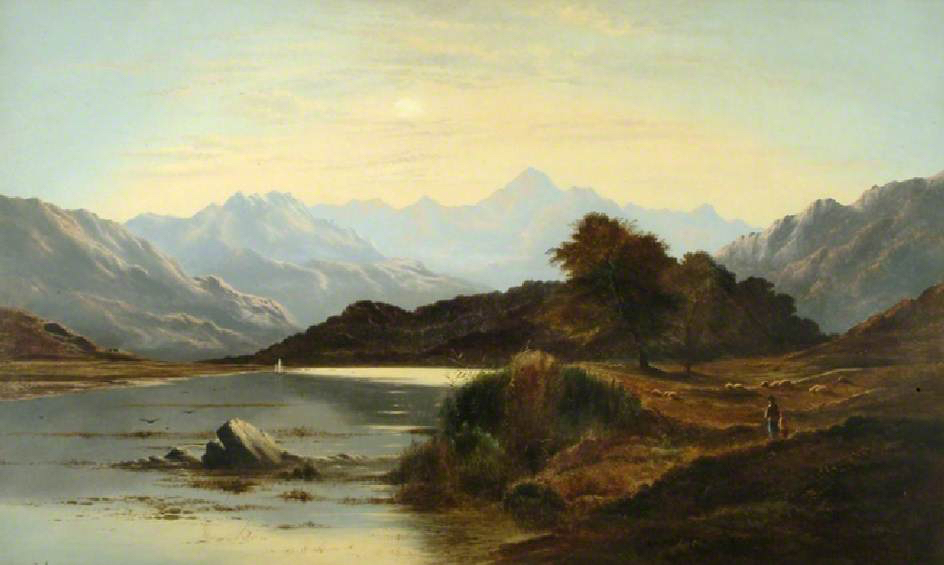The Romance of Grief
Jean Hoefling
The center of every man’s existence is a dream. Death, disease, insanity, are merely material accidents, like a toothache or a twisted ankle. That these brutal forces always besiege and often capture the citadel does not prove that they are the citadel. —G.K. Chesterton, "The Position of Sir Walter Scott" in Twelve Types
My mother died on a snowless January morning high in a hospital room from whose window one could see pretty much into forever. Sudden failings in her body’s systems had taken hold—imbalances of blood and bone and lung. Frailty won the day. Fresh in our shock we gathered, reeling from the cruel slap of this impossibility. We got out mental notebooks and filled pages with long, quixotic lists, arguing with Providence about the absurdity of this person, our person, dying for no reason at all. Her professional accomplishments; her impeccable health regimes; her unobtrusive, back-row-Baptist godliness; her beloved mom-ness. We were insulted. How could this woman, who literally looked like a movie star on her wedding day and eschewed white bread consistently and invited kids off the Reservation to stay with us and knelt with a magnifying glass before every other flower in her garden to better behold its wonders, die?
Chesterton wrote “The Position of Sir Walter Scott,” over a hundred years ago now, in which he bemoaned the atrophy of Romanticism in English literature as the trend toward Realism prevailed. Though he described Scott as a “chaotic and unequal writer,” he praised Scott for not being afraid to take the time it took to build a larger-than-life tale, populated with characters who somehow seem “more human than our waking life, even while they are less possible.” Of Scott’s effusive descriptions of setting and person, his tendency to make demigods of mere men, Chesterton says simply, “The reader sits late at his banquets.”
Grief too, makes demigods of men. It is romantic in the way Scott’s poetry is, plunging off dark cliffs into verbose hyperbole, bathed in floods of living fire as it flounders to stake out a final claim on the one who has gone away. It ignores the data that even people like my mother, who wore white satin and black velvet with unusual class and never gossiped, don’t get out alive. In the spirit of the best Romantic poets, this kind of grieving intensifies the magnificence that was the person mourned; a way of imprinting forever that one’s preciousness and immortality. The deceased becomes, for a time, more human than necessary. We don’t care that this isn’t rational in the tedious sense. We put away our subconsciously assumed post-modern values of efficiency and concision because they fail us in grief. The occasion of a death simply requires more. No mountain is too high, no vale too deep as we expound, enumerate, and wrestle with unwieldy superlatives in an effort to stay the sting of our loss. We’re determined that those “brutal forces” that assailed the citadel of the passing one’s earthly life are not the citadel itself. We describe our person like Scott did the spare environs of Loch Katrine in The Lady of the Lake, making her, a place so wondrous wild, the whole might seem/The scenery of a fairy dream.
Though keening is mostly out of fashion in the West, we have our larger-than-life hospital room eulogies. Let our loved one be an Ivanhoe for a day. Give him a tribute that “mounts higher and higher like a wave and falls in a crashing peroration."
